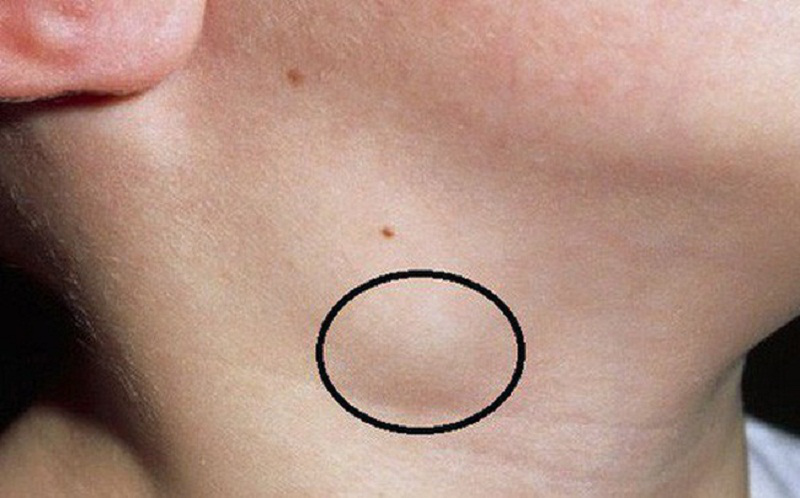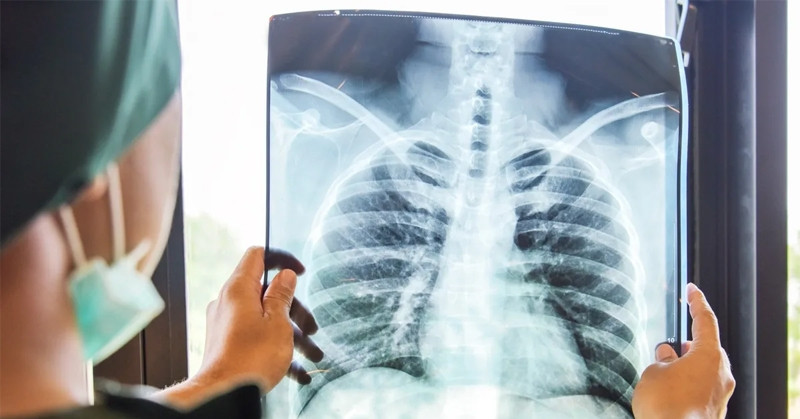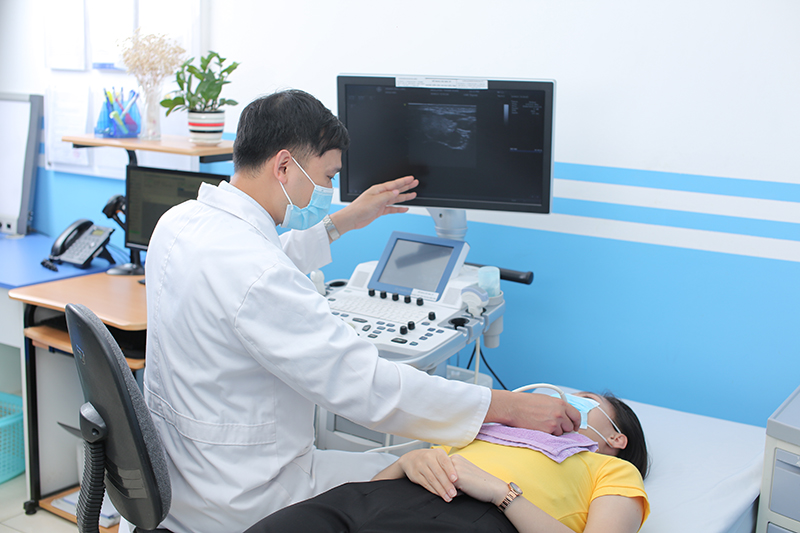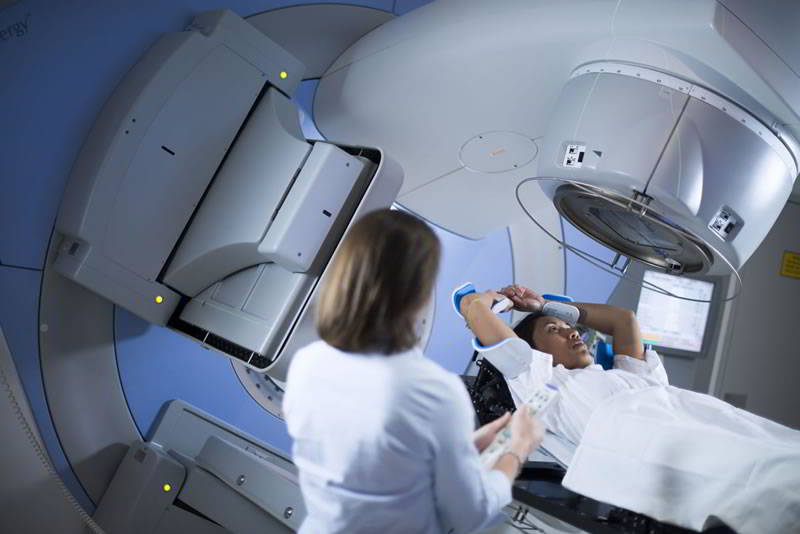Unlike some more aggressive cancers, thyroid cancer is usually slow-growing and has a lower tendency to metastasize. However, the key is early detection and timely treatment, whether it is primary or recurrent thyroid cancer. Therefore, specialists always recommend that thyroid cancer patients who have been treated should regularly monitor all manifestations of the body, and comply with the doctor’s re-examination schedule. This is very important, helping patients prevent cancer recurrence as well as limit serious symptoms.
Overview of thyroid cancer
Thyroid cancer arises from thyroid parenchymal cells. Although it is a less dangerous cancer than similar cancers in the liver, lung, stomach, colon or breast, thyroid cancer – especially differentiated thyroid cancer, which accounts for 90% of cases – still requires early and timely intervention.
The thyroid is a small, butterfly-shaped organ in the neck that plays an important role in regulating various body functions through the secretion of hormones. When cancer cells invade this organ, it disrupts the normal functioning of the thyroid gland, potentially leading to complications if left untreated.

Thyroid cancer is a disease that many people encounter.
Early detection is key in the fight against thyroid cancer, significantly improving the chances of successful treatment. Unlike some other forms of cancer, thyroid cancer symptoms are often difficult to detect, so regular screening and testing are a must for us, especially for those at higher risk due to factors such as family history or exposure to radiation.
You should know that timely diagnosis not only simplifies the treatment process but also improves the overall prognosis, giving patients a high success rate in treatment. Thyroid cancer treatment usually involves surgical intervention to remove affected thyroid tissue. In addition, radioactive iodine therapy can be used to target and destroy remaining cancer cells. Thyroid hormone replacement therapy is often necessary after surgery to maintain the body’s hormonal balance.
Early signs of thyroid cancer
Thyroid cancer often progresses silently, and symptoms are often unclear. So how can you recognize the signs of thyroid cancer?
Early signs of thyroid cancer
- Unusual lumps and swelling
Always pay attention and monitor any abnormalities in your body. If you notice a lump or swelling in your neck, be alert because this could be a sign of thyroid cancer.

A lump in the neck could be a sign of thyroid cancer.
According to specialists, thyroid tumors are usually firm, have clear borders, and move with each swallow. If affected, the lymph nodes will be soft and movable.
- Voice changes and hoarseness
Voice changes, such as hoarseness, can also be an early sign of thyroid cancer affecting the vocal cords.
- Persistent cough
If you have a persistent cough that is not related to a cold or flu, especially if it lasts for a long time, you need to see a doctor soon.
- Shortness of breath
Shortness of breath or related problems can stem from the progression of thyroid cancer.

Shortness of breath is one of the obvious symptoms of thyroid cancer.
- Neck Pain
Pain in the front of the neck or discomfort behind the ear may be associated with thyroid cancer, especially as the disease progresses.
Advanced Thyroid Cancer
- Fixed, Larger Tumor
In advanced stages, the tumor becomes larger, fixed in place, and puts pressure on the vocal cords and windpipe, causing difficulty breathing and hoarseness.
- Difficulty swallowing
Patients may have difficulty swallowing, feeling as if the throat is blocked.
- Skin Changes
Redness or bleeding in the neck area may be a sign of advanced thyroid cancer.
Recurrence and Metastasis
- Symptoms of recurrence
Recurrent thyroid cancer manifests as increasing difficulty breathing and swallowing, a rapidly growing tumor in the neck, persistent cough, and neck pain extending to the ear.
- Metastasis
Thyroid cancer can metastasize, spreading to other organs such as the bones, liver, or lungs, signaling that the disease is in its late stages.

Thyroid cancer can spread rapidly to other organs when it enters the final stages of the disease.
When detecting signs of thyroid cancer, what should the patient do?
When the patient has signs or symptoms that warn of potential thyroid health risks, the doctor may recommend the following diagnostic methods:
- Blood test
Blood tests are performed to measure the concentration of calcitonin in the blood. If this concentration is high, it will show abnormalities in the thyroid gland.
- Thyroid fine needle aspiration (FNA)
A specialist will use a small needle to draw cells from the suspected thyroid area. These cells are then analyzed to determine whether the thyroid nodule is benign or malignant, from which the doctor will have further instructions.
- Thyroid ultrasound
Thyroid ultrasound is a non-invasive imaging technique that helps detect and evaluate the nature, characteristics, and number of lymph nodes in the neck.

Ultrasound helps to assess the number of tumors as well as the condition of the disease more clearly.
- Biopsy
A biopsy is a procedure performed to detect cancer cells in the thyroid gland. During a biopsy, the doctor will collect a tissue sample and examine it under a microscope to confirm the presence of cancer cells.
Some notes when there are signs of thyroid cancer
If you experience symptoms such as unexplained hoarseness, difficulty swallowing or a lump in the neck, see your doctor early to assess your symptoms and conduct the necessary tests, from which an accurate diagnosis can be made.
If thyroid cancer is detected, the patient must follow the doctor’s treatment instructions. Surgery, radiation therapy, hormone therapy or a combination of treatments will be considered by the doctor in accordance with your specific condition.

It is necessary to follow the instructions of the treating physician to limit the metastasis of the tumor.
In addition, patients need to build a balanced diet, exercise regularly, and relax their mind to support overall health during thyroid cancer treatment. If necessary, consult a nutritionist to learn how to choose foods that support the treatment and recovery process.
After treatment, patients must follow a regular check-up schedule with their doctor. Through check-ups, the treating doctor can monitor the recovery process; and detect early signs of recurrence (if any).
In short, detecting early signs of thyroid cancer will significantly improve the chance of successful treatment. If you suspect that your symptoms are related to thyroid cancer, quickly see a specialist to diagnose the cause and receive treatment instructions as soon as possible.





